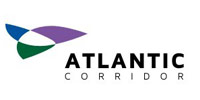News
RailNetEurope Summit on Capacity Regulation Held in Vienna
Vienna, January 30, 2025 – RailNetEurope (RNE) successfully hosted its Summit on Capacity Regulation in Vienna, bringing together railway industry leaders, regulators, and policymakers to discuss the future of railway capacity management across Europe. The event, held in a hybrid format, focused on the evolving regulatory framework for rail infrastructure capacity, aiming to enhance efficiency, interoperability, and sustainability within the European rail network.

The summit addressed key topics such as the implementation of Timetable Redesign for Smart Capacity Management (TTR), the impact of digital transformation on capacity allocation, and policy measures to optimize cross-border rail traffic. Discussions also emphasized the importance of harmonizing national regulations to facilitate seamless international railway operations.
Participants included representatives from major European railway undertakings, infrastructure managers, and regulatory bodies, all of whom highlighted the need for coordinated capacity strategies to address growing demands for freight and passenger rail services.
RailNetEurope reaffirmed its commitment to fostering collaboration among stakeholders to create a more integrated and competitive European rail market. The conclusions from the summit will inform ongoing policy developments and capacity planning initiatives within the EU railway sector.
Attendance
About 150 participants in Vienna and up to 200 participants online
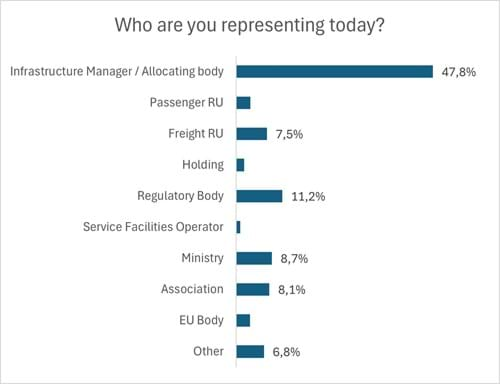
Key Discussions and Panels
The summit featured five dynamic panels, each covering a key aspect of capacity and traffic management:
- Panel 1: Sector Views on the Draft Capacity Regulation
Moderators: Monika Heiming (EIM), Christopher Maier (CER)
Panellists: Maciej Gladyga (ERFA/IGTL), Sven Gjeruldsen (Bane Nor), Tilly Metz (European Parliament), Elmer van Buuren (European Sleeper), Caroline Avaux (FPS Belgium), Clemens Först (ÖBB Rail Cargo Group)
Experts discussed the regulation’s potential impacts, challenges, and opportunities, with emphasis on harmonisation, strategic guidance and multi-annual funding stability.
Query:
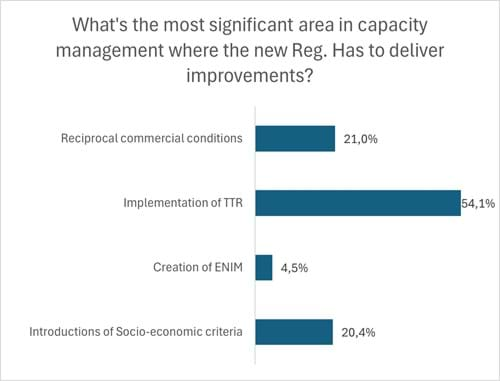
- Panel 2: RNE’s Role as Network Coordinator
Moderator: Elisabeth Hochhold (RNE)
Panellists: Alfred Pitnik (ÖBB Infra/RNE/PRIME), Linda Thulin (Trafikverket/RNE/PRIME), Edgar Schenk (FTE), Christian Wolf (BNetzA)
RNE reaffirmed its commitment to early implementation and fostering coordination among infrastructure managers. Speakers stressed the need for a shift in mindset toward a unified European railway system, the need to move in a lean and efficient way with all stakeholders. The role and “wriggle room” of national regulators was explained.
Query:
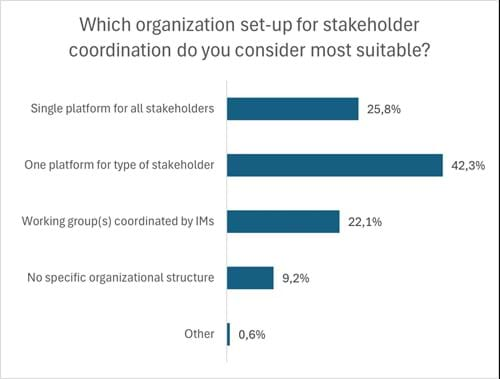
- Panel 3: Capacity Management for Market Orientation
Moderator: Guus de Mol (ProRail/RNE)
Panellists: Robert Groiss (Metrans/FTE), Weronika Karbowiak (PKP PLK), Gustav Sjöblom (Transportstyrelsen), Klaus Garstenauer (ÖBB Personenverkehr), Thomas Spiegel (BMK Austria)
Discussions centered on the need for a multi-annual, multi-national approach to capacity management and TCR planning, highlighting the importance of rolling planning and cross-border coordination. The panellists had different views on the practicability of socio-economic criteria.
Query:
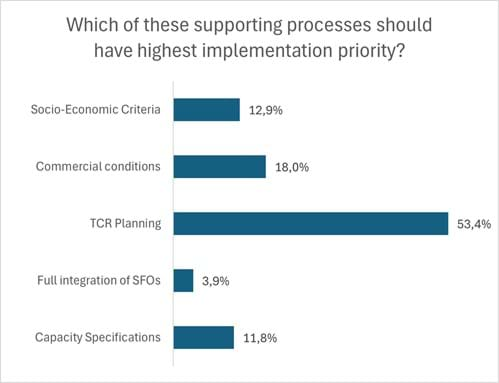
- Panel 4: Traffic Management for Seamless Coordination
Moderator: Stefano Castro (RFI/RNE)
Panellists: Erik Van Der Linden (ProRail), Bjarne Holmgren (Trafikverket), Peter Šišolak (RNE), Simona Garbuglia (T4RAIL/RFI), Ralf-Charley Schultze (UIRR)
Panelists emphasized the ongoing development of European coordination processes and tools to enhance real-time traffic coordination and disruption management across borders.
Query:
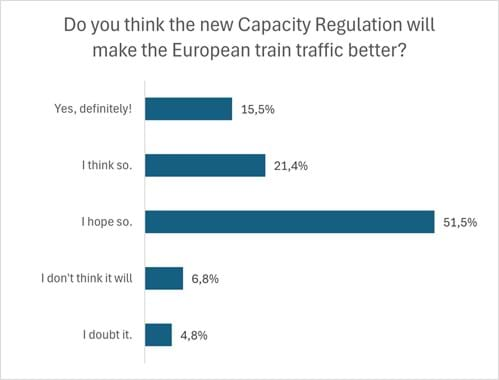
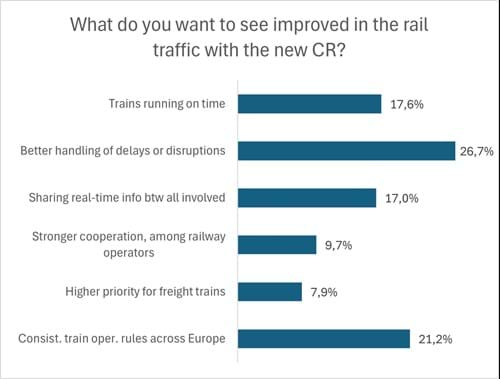
- Panel 5: Railway Digitalization for a Flexible Future
Moderator: Harald Reisinger (RNE)
Panellists: Yann Seimandi (European Commission), Christopher Carr (ERA), Frédéric Hénon (UIC), Michel Geubelle (Infrabel/RNE), Gilles Peterhans (UIP)
Digital transformation was identified as a key driver for efficiency, with calls for increased data-sharing, harmonized IT solutions, and investment in European digital infrastructure.
Query:
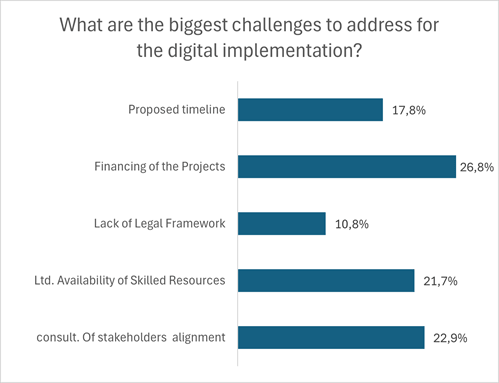
Key Conclusions from the Summit
- A strong governance framework is essential for successful regulation implementation.
- The railway sector needs harmonized European rules for long-term planning.
- Digitalization must accelerate to improve capacity and traffic management.
- Collaboration among stakeholders is crucial for building a resilient railway network.
For further insights, watch the conclusions video and visit RNE’s official website.
